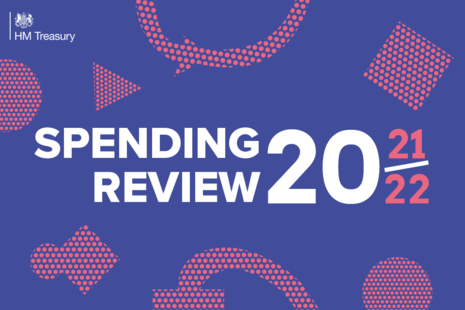
On Wednesday 25 November 2020, Chancellor Rishi Sunak set out the UK’s economic recovery plans beyond COVID-19. The Chancellor says the Spending Review ‘delivers on the proprieties of the British people’ with the protection of lives and livelihoods at the top of the agenda, allocating £55 billion to tackle the virus in 2021.
Here is our summary of the key points:
Employment
The Chancellor has announced an increase in the National Living Wage to £8.91 per hour (2.2% rise) from April 2021, aimed at benefiting 2 million of the UK’s lowest paid. Alongside this, 2.1 million public sector workers earning below the median wage of £24,000 per annum will be guaranteed a pay rise of at least £250. Nurses, doctors and other NHS workers will receive a pay rise but there will be a pause on pay rises for the rest of the public sector next year.
Business support
In an effort to support UK businesses, the business rates multiplier will be frozen in 2021-22 which will save businesses in England £575 million over the next five years.
Courts
The Treasury has pledged a £275 million funding boost to raise court capacity following the backlog created as a result of the pandemic.
Infrastructure
Over £58 billion of investment has been confirmed for road and rail with £20 billion towards the Government’s long-term housing strategy. £5.2 billion is being committed to flood and coastal defence and over £22 billion of funding for HS2, the largest construction project in Europe. Full details of the Government’s National Infrastructure Strategy can be found here.
Unemployment
The Office for Budget Responsibility (OBR) expect unemployment to peak at 7.5% (2.6 million) in the second quarter of 2021. Nearly £3 billion will be provided to deliver a three year “restart programme” to help over one million people who have been unemployed for over 12 months to secure new work. The latest data shows the UK’s unemployment rate is lower than Italy, France, Spain, Canada and the United States. Unemployment is forecasted to fall each year, reaching 4.4% by the end of 2024.
Overseas aid
The UK Government will spend the equivalent of 0.5% of national income on overseas aid in 2021. The UK will remain one of the largest overseas aid donors in the world with an investment of over £24 billion in defence, the biggest sustained increase in 30 years.
For further information on the 2020 Spending Review and how it affects you, please email us or contact the team on 020 8858 6971.


